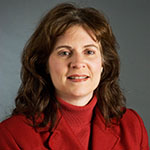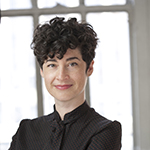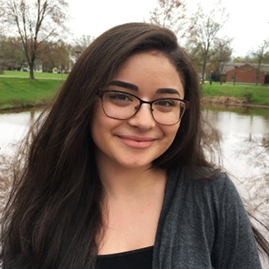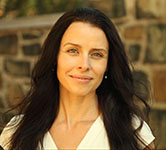 Congratulations to Sumbleen Ali, the second HDFS graduate student this year to receive a summer fellowship from the CT Institute for the Brain and Cognitive Sciences (IBACS). You can learn more about the fellowship, and about IBACS, here.
Congratulations to Sumbleen Ali, the second HDFS graduate student this year to receive a summer fellowship from the CT Institute for the Brain and Cognitive Sciences (IBACS). You can learn more about the fellowship, and about IBACS, here.
Author: Janice Berriault
Timothy McKay receives summer fellowship from IBACS
 HDFS Graduate student Timothy McKay received a summer fellowship from the CT Institute for the Brain and Cognitive Sciences (IBACS). You can learn more about the fellowship, and about IBACS, here: https://ibacs.uconn.edu/resources/graduate-fellowships/
HDFS Graduate student Timothy McKay received a summer fellowship from the CT Institute for the Brain and Cognitive Sciences (IBACS). You can learn more about the fellowship, and about IBACS, here: https://ibacs.uconn.edu/resources/graduate-fellowships/
Laura Donorfio’s work featured on AAUP’s FB page
 AAUP’s feature of Associate Professor Laura Donorfio, highlights her work with students and with the Osher Lifelong Learning Institute (OLLI). The AAUP features UConn faculty as part of an ongoing effort to educate legislators (and others) on what UConn faculty do and the impact we have outside of the classroom.
AAUP’s feature of Associate Professor Laura Donorfio, highlights her work with students and with the Osher Lifelong Learning Institute (OLLI). The AAUP features UConn faculty as part of an ongoing effort to educate legislators (and others) on what UConn faculty do and the impact we have outside of the classroom.
Ronald Rohner featured on AAUP’s FB page
 See this recent article about Emeritus Professor Ronald Rohner by the AAUP.
See this recent article about Emeritus Professor Ronald Rohner by the AAUP.
Laura Mauldin’s book featured in the Pacific Standard
 See the following news coverage in the Pacific Standard on Laura Mauldin’s book, Made to Hear.
See the following news coverage in the Pacific Standard on Laura Mauldin’s book, Made to Hear.
Emily Mendoza, Caira Ward & faculty mentors receive SHARE awards
HDFS students Emily Mendoza and Caira Ward, and their faculty mentors, Alaina Brenick and Edna Brown, are two of the 13 student-faculty teams to receive Spring 2018 SHARE awards to support undergraduate research apprenticeships. Congratulations Emily and Caira!

Project Title: Diverse Experiences of and Evaluations about Sexting and Sexting Victimization
Student Apprentice: Emily Mendoza, Human Development and Family Studies
Faculty Mentor: Alaina Brenick, Human Development and Family Studies
Award Co-Sponsored by the University of Connecticut Humanities Institute

Project Title: African American Breast Cancer Survivors
Student Apprentice: Caira Ward, Human Development and Family Studies, Africana Studies
Faculty Mentor: Edna Brown, Human Development and Family Studies
HDFS Alumna Cameron Froude awarded Song-Brown Grant
 HDFS graduate Cameron Froude, PhD, MA, LMFT – the Behavioral Health Program Manager of the John Muir Health Family Medicine Residency Program – has been awarded a $925,000 grant: 2018-2021 SONG-BROWN GRANT – Training family medicine residents in team-based, whole-person care. Role: Principle Investigator; Project Coordinator. The goals of this project are threefold: to train residents in facilitating interprofessional group medical visits for patients at a local FQHC; to train residents in providing integrated biomedical and behavioral healthcare to patients treated on a mobile health van, and; to support one resident position for 3 years.
HDFS graduate Cameron Froude, PhD, MA, LMFT – the Behavioral Health Program Manager of the John Muir Health Family Medicine Residency Program – has been awarded a $925,000 grant: 2018-2021 SONG-BROWN GRANT – Training family medicine residents in team-based, whole-person care. Role: Principle Investigator; Project Coordinator. The goals of this project are threefold: to train residents in facilitating interprofessional group medical visits for patients at a local FQHC; to train residents in providing integrated biomedical and behavioral healthcare to patients treated on a mobile health van, and; to support one resident position for 3 years.
Rebecca Puhl’s work published in American Academy of Pediatrics
 Professor Rebecca Puhl recently coauthored a policy statement that was published in the American Academy of Pediatrics, which addresses the social and emotional impact of obesity in youth and encourages pediatricians to improve supportive care for children and families struggling with weight. Read some of the press coverage in the New York Times, Reuters, and NBC.
Professor Rebecca Puhl recently coauthored a policy statement that was published in the American Academy of Pediatrics, which addresses the social and emotional impact of obesity in youth and encourages pediatricians to improve supportive care for children and families struggling with weight. Read some of the press coverage in the New York Times, Reuters, and NBC.
UConn rated a Top 10 HDFS Graduate Program!
UConn’s HDFS graduate program was rated in the top 10 in North America! See The HDFS Report: Claire Kamp Dush’s Ranking of HDFS Programs in North America
Marlene Schwartz’s recent research in UConn Today article
 A new study by the Rudd Center for Food Policy and Obesity at the University of Connecticut suggests that living in a food swamp – a neighborhood where fast food and junk food outlets outnumber healthy alternatives – is a stronger predictor of high obesity rates than living in a neighborhood with limited access to affordable, nutritious food, or food desert. Read more of article titled, Food Swamps Predict Obesity Rates Better Than Food Deserts
A new study by the Rudd Center for Food Policy and Obesity at the University of Connecticut suggests that living in a food swamp – a neighborhood where fast food and junk food outlets outnumber healthy alternatives – is a stronger predictor of high obesity rates than living in a neighborhood with limited access to affordable, nutritious food, or food desert. Read more of article titled, Food Swamps Predict Obesity Rates Better Than Food Deserts
Study co- authors: Marlene Schwartz, UConn Rudd Center director and professor of Human Development and Family Studies, and Kelly Brownell, Dean of the Sanford School of Public Policy at Duke University.